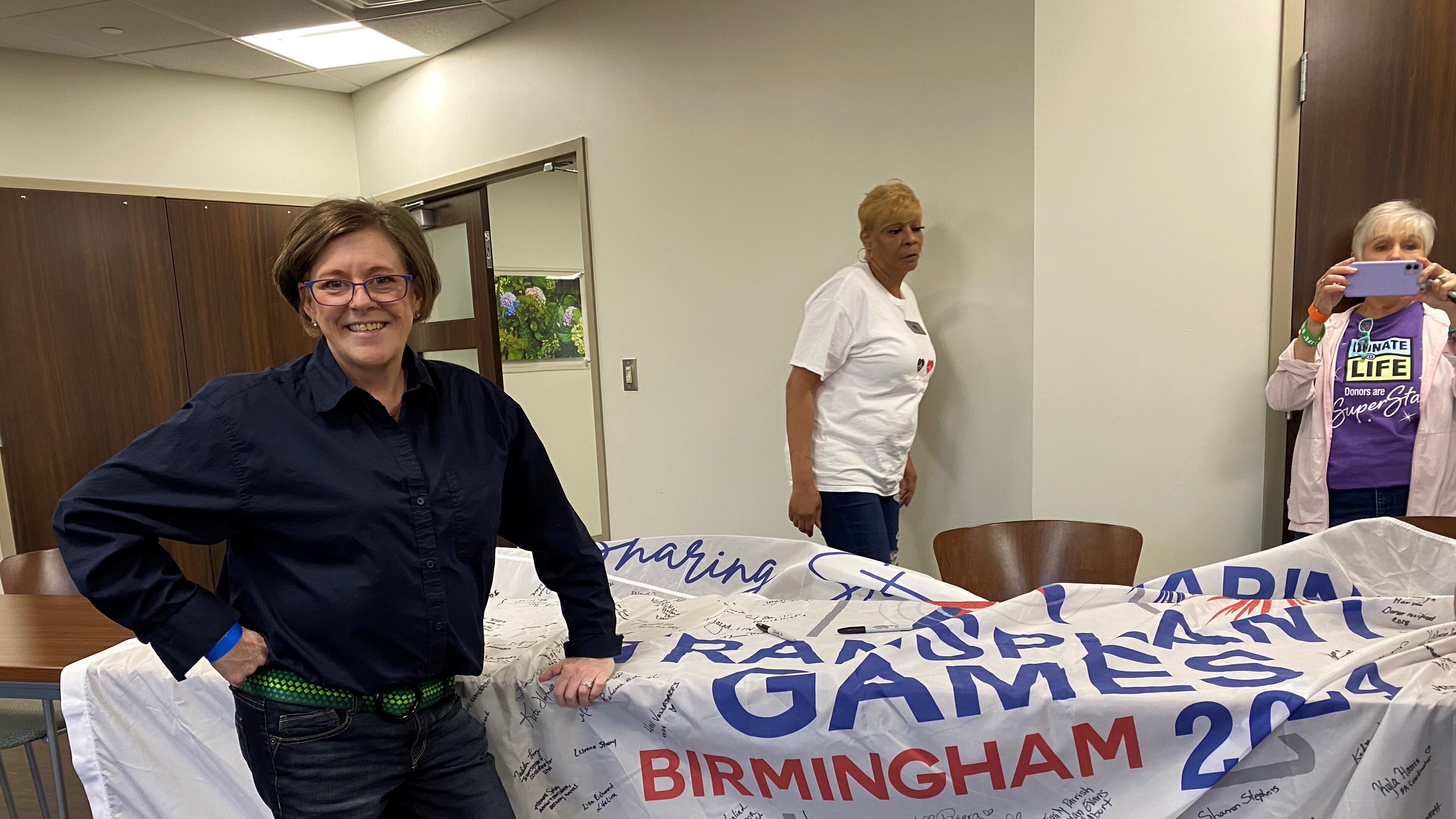Survivor campaigns for liver awareness

Beth Lehman isn’t shy about openly relating the intimate details of how she almost drank herself to death. It was a habit she’d formed while traveling extensively as an IT consultant, and it kept going after her marriage in 2010 and her move to Dunwoody two years later.
“By then, my career was drinking,” said Lehman. “People started noticing and called me a drunk behind my back. Still, it kept escalating for four years.”
A few months before COVID-19 set in, Lehman collapsed while hosting a party. It was the wake-up call that got her on the road to sobriety. But during that struggle, she was diagnosed with liver cancer, and the treatments left her weighing 72 pounds. Multiple complications kept her off the transplant list until April 2021 when she finally received a new liver.
A year later, Lehman started sharing her story.
“Alcoholism affects your whole family,” she said. “I realized I can use every bit of my story to help multitudes of people.”
Lehman has related her journey as a volunteer with Donate Life Georgia, where she’s manned a Peachtree Road Race table to register organ donors. She’s spoken at health fairs and medical symposiums, and become a mentor and spokesperson for the Georgia Transplant Foundation. She’s also played an active role in the American Liver Foundation’s annual walk.
“I first got involved with the walk in 2022 and raised $30,000,” she said. “This year, I became co-chair of the event, and in May, we raised over $46,000.”
Lehman has also become an avid supporter of the Transplant Games, happening in Birmingham this week.
“It’s a chance for people to say, ‘I live a normal life,’” she said. “I wake up every morning and thank God and my donor. I wouldn’t be alive without them.”
Recently, Lehman co-founded Sober Livers, a peer support group for those with alcohol-related liver disease.
“There are other support groups, but they’re not for people who have medically damaged their bodies through drinking,” she said. “It’s so shameful, and the pain is raw and real. There’s also so much guilt because people think they did it to themselves.”
Lehman also speaks openly about comments she’s received from people who don’t think she should have received a transplant due to her alcoholism.
“I know there are some who believe that, but hopefully, what I’m doing with my life now is helping enough people to make that transplant worthwhile,” she said. “We’re finally getting help for people with alcohol-related liver disease.”
Information about Sober Livers is online at soberlivers.org.
Who’s doing good? Each week, we highlight a deserving individual, charity or event such as a fun-run, volunteer project and other community gathering that benefits a good cause. To suggest a story, please email hm_cauley@yahoo.com or call 770-744-3042.

